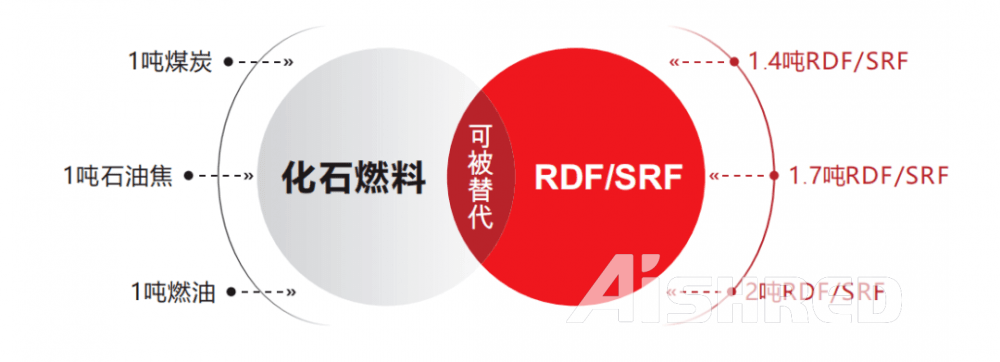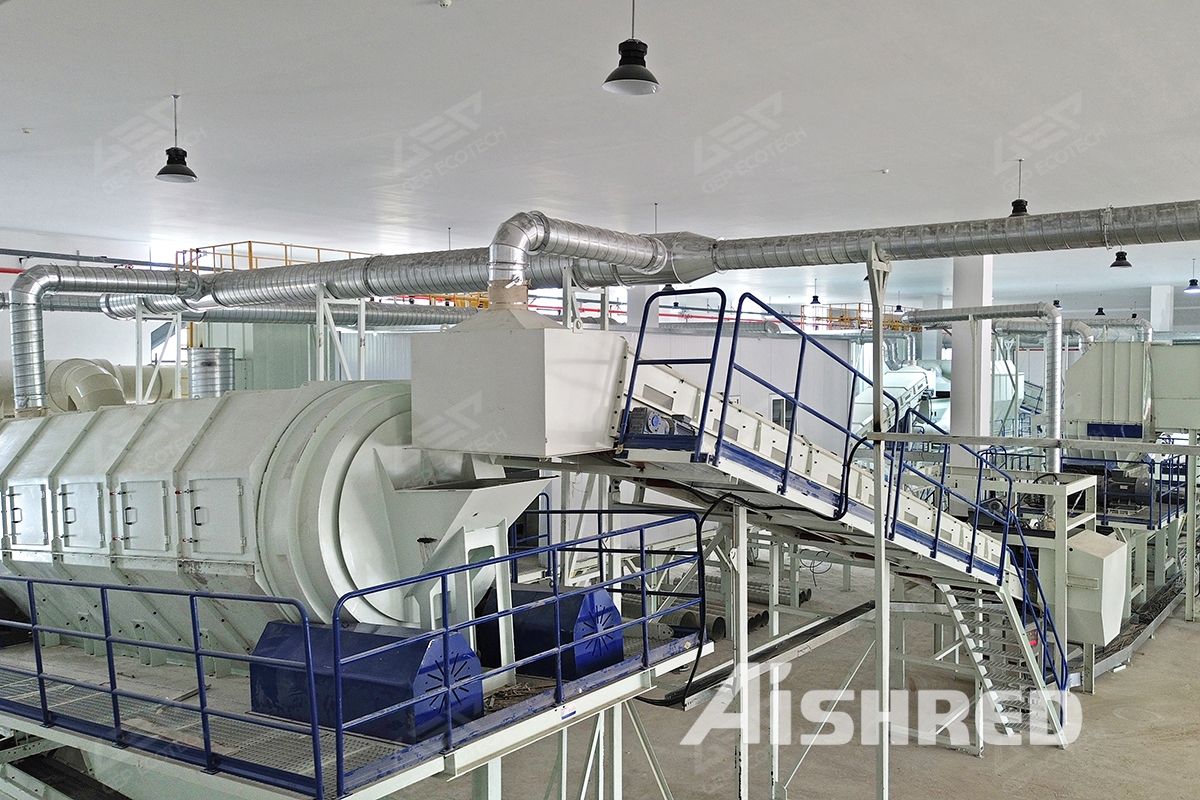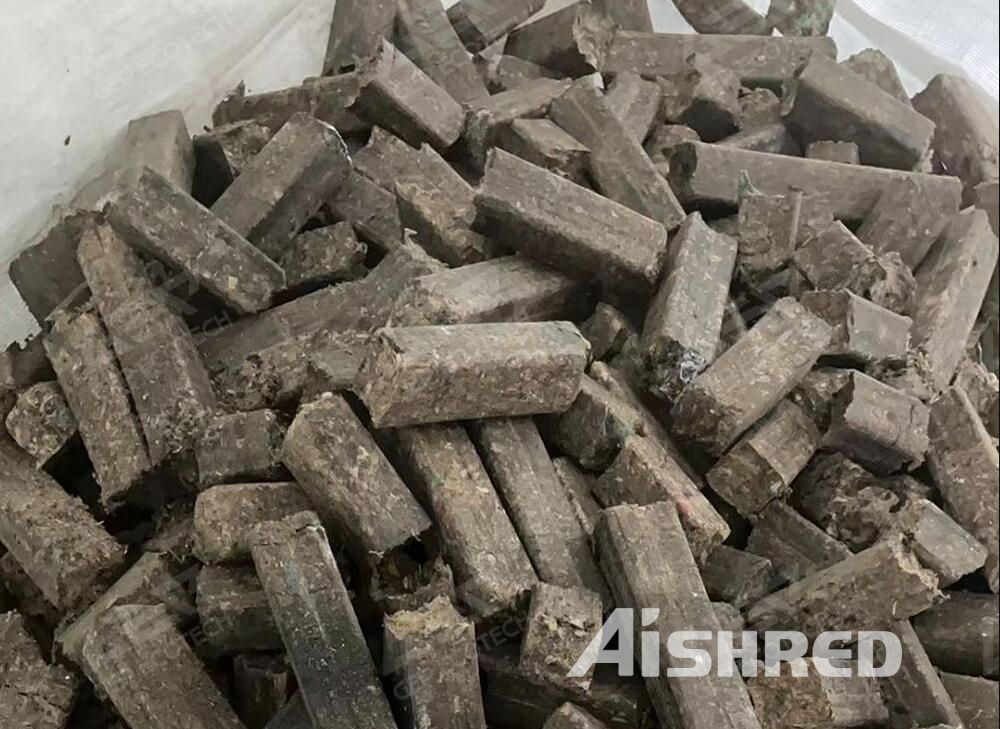During the production of cement, clinker needs to be calcined at a high temperature of 1300-1450°C, which will consume a large amount of fossil energy, and the carbon dioxide produced by the combustion of fossil fuels accounts for about 30%-35% of the total carbon emissions of cement companies. The application of alternative fuels to reduce the use of coal has received attention in the cement industry and can significantly reduce the carbon emissions from fuel combustion.

As a promising renewable energy source, alternative fuels (SRF/RDF) have become the fourth largest energy source after coal, oil and natural gas for various industrial kilns such as cement kilns and fluidized beds. Alternative fuels as a high-quality environmentally friendly renewable resources, itself from solid waste waste treatment, combustion efficiency and fossil fuels similar, but low carbon emissions, to meet the policy requirements of carbon emission reduction, cost savings for enterprises, has an important significance for environmental protection.
The SRF/RDF alternative fuel preparation system developed by GEP ECOTECH extracts high calorific value combustible solid waste from the waste from the perspective of fuel in the cement industry and then processes and prepares it into green energy. It not only realizes the waste reduction, harmless and resourceful, but also reduces the consumption of fossil energy for clinker production, thus achieving a win-win situation for both carbon reduction and economy.

GEP ECOTECH has rich technical experience in alternative fuel (SRF/RDF/TDF) preparation and has developed solid waste preparation systems for domestic/industrial waste, biomass, waste tires, bulky waste, etc., which can convert waste solid waste into high quality high calorific value alternative fuel (SRF/RDF/TDF), thus realizing the conversion of waste to energy.
As a renewable energy source, solid alternative fuels have now jumped to the fourth largest energy source in various industrial kiln applications such as cement kilns and fluidized beds. Domestic/industrial waste, biomass, used tires, bulky waste, etc. can be used as alternative fuels in large quantities and can be safely processed in rotary kiln systems in cement plants or boilers in thermal power plants using high temperature processes without leaving any residue.

Against the background of global energy shortage, the development of alternative fuels is vigorously promoted, and the use of SRF alternative fuel preparation system can not only alleviate the dependence of energy-using enterprises on traditional fossil fuels to a certain extent and bring them certain operating profits; it is also of great significance to the reduction of carbon dioxide and other greenhouse gas emissions and environmental protection.

